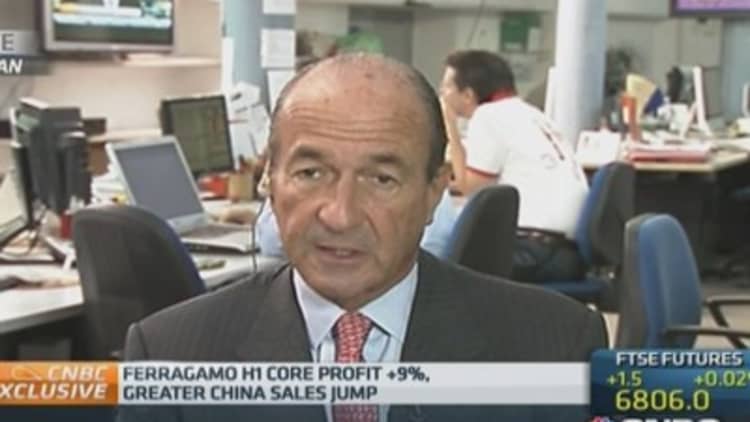As a broke graduate student at the University of Texas four years ago, Morgan Ward had an Achilles' heel for luxury brands. But when she'd walk into a high-end store in less-than designer duds, the sales clerks weren't very accommodating.
"I asked to see a bag behind the counter and [a salesman] said, 'Well, I'll show it to you, but it's very expensive,' " Ward recalled.
Read MoreChina the perfect fit for London's $6,000 tailors
But a curious thing happened when he said this.
"Despite the feeling of condescension, I noticed it didn't send me running out of the store," she said. In fact, it made her want the pricey bag even more. "[I thought,] I'll show him ... and I wondered if I was the only one."
It turns out she's not. Now a marketing professor of at Southern Methodist University's Cox School of Business, Ward tested her theory with Darren W. Dahl of The University of British Columbia, in a study to be published in October's Journal of Consumer Research. In one of the experiments they found that consumers who were treated poorly by sales staff were willing to pay 10 percent more than others.
For the study, titled "Should the Devil Sell Prada?" researchers sent two groups of consumers into a simulated retail experience. One group encountered actors who were instructed to "take a long look at the participant at the door [and] appear unimpressed," among other rude behaviors. The control group entered a neutral environment.
Read More
The researchers then measured both groups' willingness to pay for the items in question, and found customers who had been insulted routinely said they'd pay more. In one scenario, insulted shoppers said they'd pay $31,000 for a hypothetical car being sold under the Toyota brand. The control group, on the other hand, said it was worth only $24,000.
Ward equated the reaction to high school kids who, when getting the cold shoulder from a member of the "in" crowd, work harder to be accepted. Being rejected by exclusive brands taps into the same human nature, Ward said.
"We are pack animals. We don't want to be rejected by any groups," she said.

Pam Danziger, president of luxury research firm Unity Marketing, conceded that a snooty sales staff is a reality in many stores. But she was highly critical of the message implied by Ward's research, suggesting the study's focus on so-called aspirational shoppers—those who appreciate high-end goods but don't have the income to be true luxury consumers—colored the results.
"Luxury consumers are among the most empowered consumers because of their wealth and ability to pay, and they wouldn't for a moment accept that kind of treatment," she said. "To me, I think it's a huge disservice to luxury brands to lead them down that path."
Read MoreFerragamo defies China fears but warns on Russia
In fact, many high-end retailers have spent the past decade or so training staff to be less judgmental, she said. At one store where she consults, corporate myth includes a customer who arrived on bicycle, was mistaken for a delivery boy, and purchased a $10,000 watch.
Luxury stores have also tried to be more friendly in an effort to expand their market beyond the ultra-rich to so-called "HENRYs"—consumers who are high earners not yet rich that might be uncomfortable walking up to the glass counter.
According to Unity Research, "HENRYs" buy 90 percent of luxury goods—meaning being rude "could kill your business and scare off customers that really matter," Danziger said.
—By Bob Sullivan, Special to CNBC.com


